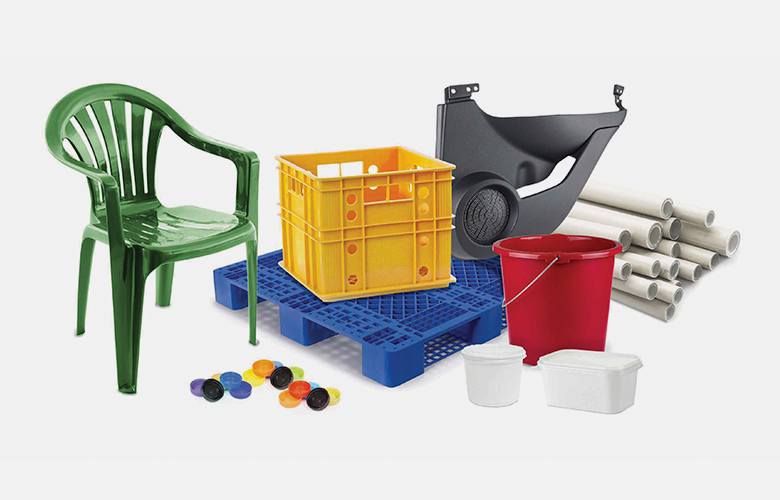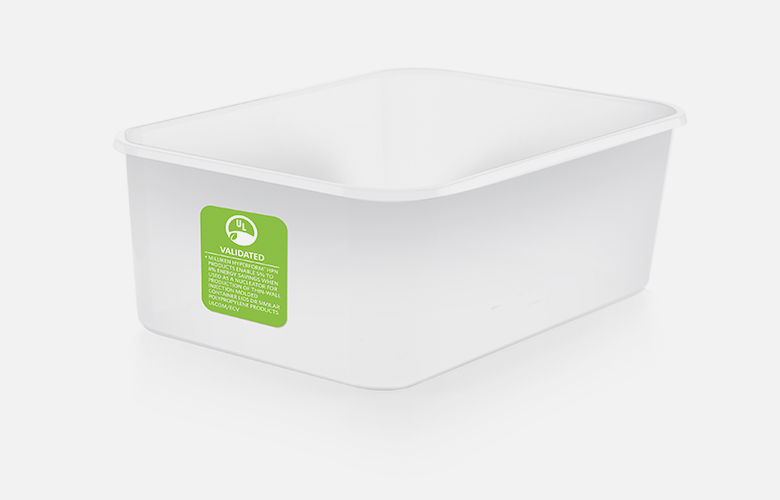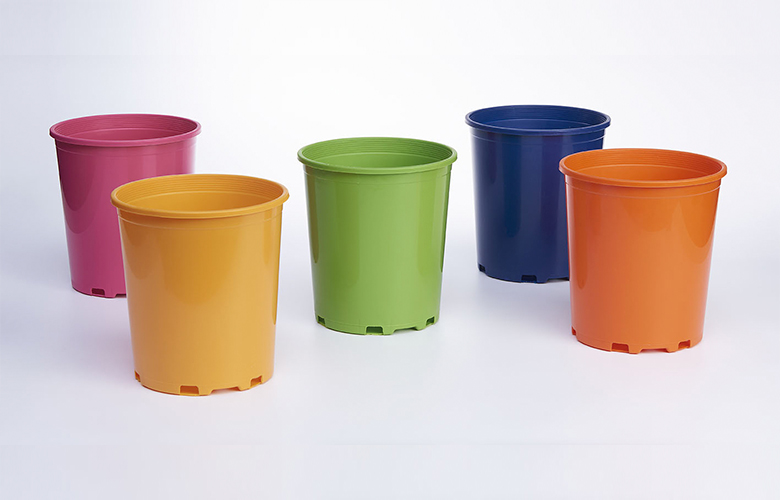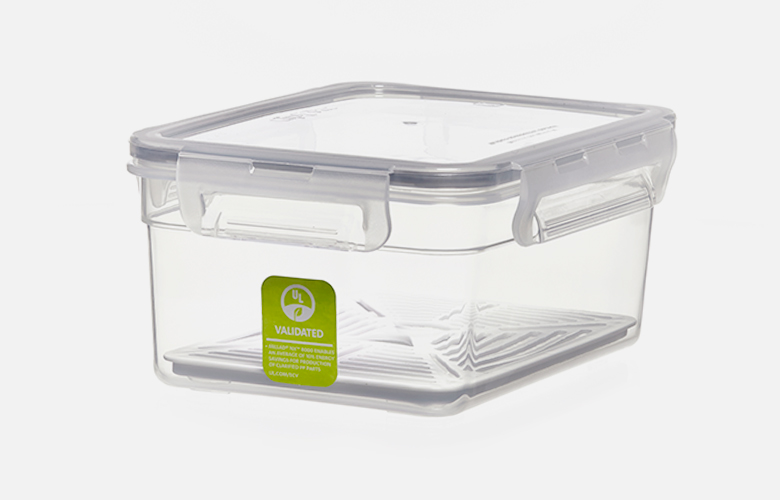Reduce, Reuse, Recycle. The core of Milliken’s sustainability and innovation.
May 18, 2019 by Wim Van de VeldeMilliken’s technical innovations that enhance recycling, reduce overall waste and lower greenhouse gas emissions are supporting government and industry efforts in the drive towards a plastics circular economy.
Ensuring sustainability is a major concern for plastics manufacturers, others across the plastics value chain, and society more broadly, as the industry transitions to a circular economy where resources are used in a more sustainable way.
We all know that plastics are an important and integral part of modern daily life, yet we are also all aware of some of the production, disposal and clean-up challenges that they pose to the environment. Traditionally, plastics have been made from fossil fuels like oil and converting this into plastic feedstocks contributes to global CO2 emissions and single use plastics and plastic waste in our environment, including our oceans, have recently become more prominent issues.
It’s fair to say that the “reduce, reuse, recycle” approach has, until now, been slow, and lacked significant success. However, with an increasing number of new initiatives, and the growing participation of government and industry, change is starting to happen.

New Plastics Initiatives Building Momentum
In 2018, the European Union adopted its first-ever Strategy for Plastics in a Circular Economy in a bid to transform the way plastic products are designed, used, produced and recycled in Europe. This includes designing plastic products for recycling, higher plastic waste recycling rates, and encouraging more and better quality recyclates to help boost the market for recycled plastics. Importantly, by 2030 all plastic packaging on the EU market needs to be recyclable. Brand owners will have to find commercially viable options to become more sustainable. The EU says this strategy will deliver greater added value for a more competitive and resilient plastics industry.
Another initiative is the New Plastics Economy, led by the Ellen MacArthur Foundation and UN Environment. Their Global Commitment unites businesses, governments and other organisations behind a common vision to create a circular economy for plastics. It aims to catalyse change through collaboration, demonstrating the potential for a wider shift from a linear to a circular economy.
In 2019, the Alliance to End Plastic Waste formed with the intention to invest $1.5 billion over the next five years to help end plastic waste in the environment. The Alliance, of which Milliken is a member, is made up of nearly thirty global companies from the plastics and consumer goods value chain. It will develop and bring to scale solutions that will minimize and manage plastic waste and promote solutions for used plastics by helping to enable a circular economy. The Alliance membership represents global companies located throughout North and South America, Europe, Asia, Southeast Asia, Africa, and the Middle East.
So, what might contributions to these initiatives be and how can everyone throughout the plastics value chain play their part in the drive towards sustainability?

Milliken’s R&D Focus Providing New Solutions
Many throughout the chain have begun this necessary journey towards a New Plastics Economy. At Milliken the “reduce, reuse, recycle” ethos is at the centre of our sustainability thinking and technological innovation. Providing new options for a cleaner and more circular future is an active area of our R&D. We are therefore developing new partnerships and solutions to help converters manufacture more sustainably. Our solutions reduce energy use, enable the substitution of more environmentally friendly materials, and promote the recyclability of resins such as polypropylene (PP) or the use of a higher percentage of recycled PP in end products.
Reduce, Reuse, Recycle
At the forefront of our sustainability efforts is the Millad® NX® 8000 clarifying additive, used to produce the fully transparent material known as NX® UltraClear™ PP, which yields durable end products with superb, glass-like clarity. This makes PP a viable alternative to resins such as PET and polystyrene in a wide range of packaging applications.
Many bottles and containers today rely on multilayer constructions using a variety of materials to deliver the end result required. Such packaging may yield the necessary performance but can be bad for the environment. Multi-material packaging often hinders recyclability. In many applications, PP can be used not only in the bottles but also in the caps and labels, offering a viable, mono-material solution that doesn’t require adhesives or glues.
By enabling clear, transparent, Millad NX 8000-modified PP to replace alternative materials, brand owners and converters improve their options for producing more recyclable, mono-material products, for example, bottles or containers, plus their labels and caps all in PP, enhancing recycling.
When used in injection moulding, Millad NX 8000 also allows converters to process PP at lower temperatures and can reduce energy consumption by around 15% when compared to conventional clarifiers. By using Millad NX 8000, and NX UltraClear PP resin, brand owners can display a UL Environmental Claim Validation (ECV) label on their packaging to illustrate their commitment to sustainability.
Additionally, a recent Life Cycle Assessment of PET and NX UltraClear PP trays has found that an NX UltraClear PP tray has a better environmental performance than the identical sized PET tray in all of the impact categories, and scenarios, assessed in the study.

Milliken also announced an exciting new partnership with PureCycle Technologies and Nestlé to accelerate revolutionary plastics recycling. It uses technology developed and licenced by Procter & Gamble to advance the closed-loop recycling of polypropylene resin. By 2021, PureCycle plans to open its first plant that restores ‘virgin-like’ quality to waste PP resin. The company works with certifying bodies, such as UL (Underwriters Laboratories) that provide independent assurance of product environmental credentials. This will enable the recycled material to become truly circular, and be re-used in its original application, as opposed to having to be downcycled into lower-value products.
In a bid to increase the use of recycled plastic, Milliken’s DeltaMax™ is a radical advancement in additive technology for polypropylene impact copolymers and recycled polypropylene, allowing compounders and converters to incorporate up to 100 percent recycled PP without sacrificing performance or processing. Until now, the limited availability of high-performance recycled streams and their variability from month to month have inhibited the adoption of recycled PP. DeltaMax Performance Modifiers remove this roadblock by restoring impact and melt flow properties. They also allow convertors to decrease processing temperatures, which saves energy, increase cycle time and reduce CO2 emissions, helping to reduce costs and answer the demand for more sustainable materials.
As well, the Hyperform HPN family of performance additives is designed to enhance processes and results for producers and converters of polypropylene and polyethylene. The range includes products for almost every PP and PE process. They can improve the speed and efficiency of your operations, leading to reduced costs and better productivity.
And, by using Milliken’s UltraGuard Solutions for PE, brands can reduce the amount of plastic usage by up to 30 percent without sacrificing oxygen or moisture barrier properties. Products that require barrier protection, such as pharmaceuticals, nutraceuticals and nutritional drinks, can be packaged in thinner bottles that are made with this Milliken technology.

The Beginning of a More Sustainable Future
As an industry, and society, we are at the beginning of the shift towards a more closed loop plastics economy. Our journey will evolve as we continue to develop and implement new ideas and technologies. Providing new solutions, and helping our customers to become more sustainable, will remain the research focus at Milliken as we strive to contribute to a safer future.
